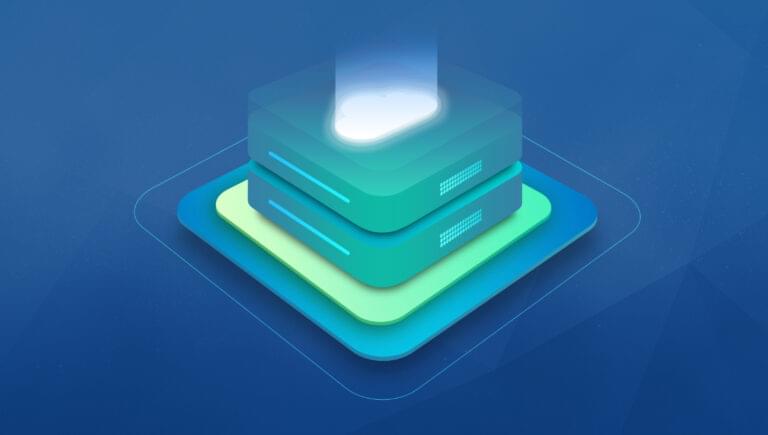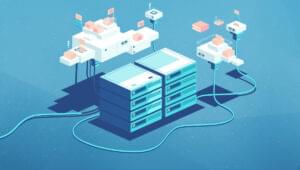- AWS Aurora Features
- AWS RDS Features
- AWS Aurora Pricing
- AWS RDS Pricing
- AWS Aurora Ecosystem and Community
- AWS RDS Ecosystem and Community
- Support
- Scalability and Architecture: AWS Aurora
- Scalability and Architecture: AWS RDS
- Replication: AWS Aurora
- Replication: AWS RDS
- Failover and Resiliency: AWS Aurora
- Failover and Resiliency: AWS RDS
- Conclusion
- Frequently Asked Questions (FAQs) on AWS Aurora vs RDS
Amazon Web Services (AWS) offers two managed database services: Amazon RDS and Amazon Aurora. Both services provide a scalable, reliable, and cost-effective solution for managing relational databases in the cloud. In this article, we’ll compare the pros and cons of AWS Aurora and RDS, considering features, pricing, ecosystem, community, support, scalability, architecture, replication, failover, resiliency, and other relevant factors for DevOps engineers.
AWS Aurora Features
Aurora is a fully managed, MySQL and PostgreSQL-compatible relational database engine. It’s designed to deliver up to five times the performance of MySQL and three times the performance of PostgreSQL. Key features include:
- automatic storage scaling
- high availability with up to 15 read replicas
- continuous backup to Amazon S3
- fast database cloning
- backtrack for rewinding the database to a previous point in time
- serverless mode for on-demand capacity
- global database for cross-region replication
AWS RDS Features
RDS is a managed relational database service that supports six database engines: MySQL, PostgreSQL, MariaDB, Oracle, Microsoft SQL Server, and Amazon Aurora. Key features include:
- automatic backups
- Multi-AZ deployments for high availability
- read replicas for read-heavy workloads
- database snapshots
- automatic host replacement
- monitoring and performance insights
AWS Aurora Pricing
Aurora pricing is based on the instance class, storage, I/O, and backup storage. There are two pricing models: On-Demand and Reserved Instances. On-Demand pricing allows you to pay for capacity as you need it, while Reserved Instances offer significant discounts for long-term commitments.
AWS RDS Pricing
RDS pricing depends on the database engine, instance class, storage, I/O, and backup storage. Similar to Aurora, RDS offers On-Demand and Reserved Instances pricing models.
AWS Aurora Ecosystem and Community
Aurora is an AWS-native service, which means it’s tightly integrated with other AWS services like Lambda, CloudWatch, and CloudFormation. The community around Aurora is growing, with numerous blog posts, tutorials, and case studies available.
AWS RDS Ecosystem and Community
RDS supports multiple database engines, which means it benefits from the larger community and ecosystem around each engine. RDS also integrates well with other AWS services.
Support
Both Aurora and RDS are fully managed services, which means AWS handles the underlying infrastructure, patching, backups, and monitoring. AWS provides support through various channels, including documentation, forums, and paid support plans.
Scalability and Architecture: AWS Aurora
Aurora is designed for high scalability, with automatic storage scaling up to 128 TB and support for up to 15 read replicas. Aurora also offers a serverless mode, which automatically adjusts capacity based on workload.
Scalability and Architecture: AWS RDS
RDS provides vertical scaling by changing the instance class and horizontal scaling with read replicas. However, RDS doesn’t offer automatic storage scaling or serverless mode like Aurora.
Replication: AWS Aurora
Aurora supports up to 15 read replicas, with sub-10ms replica lag. Aurora Global Database enables cross-region replication for disaster recovery and low-latency global reads.
Replication: AWS RDS
RDS supports read replicas for MySQL, PostgreSQL, and MariaDB, with a maximum of five replicas. Cross-region replication is available for MySQL and PostgreSQL.
Failover and Resiliency: AWS Aurora
Aurora provides automatic failover with Multi-AZ deployments and read replicas. Aurora also offers backtrack, which allows you to rewind the database to a previous point in time without restoring from a backup.
Failover and Resiliency: AWS RDS
RDS supports automatic failover with Multi-AZ deployments. However, RDS does not offer a backtrack feature like Aurora.
Conclusion
AWS Aurora and RDS both offer robust managed database solutions with trade-offs that need to be carefully weighed for each specific use case.
Frequently Asked Questions (FAQs) on AWS Aurora vs RDS
What are the key differences between AWS Aurora and RDS?
AWS Aurora and RDS are both managed database services provided by Amazon Web Services. However, they differ in several ways. AWS Aurora is a relational database engine that combines the speed and reliability of high-end commercial databases with the simplicity and cost-effectiveness of open-source databases. It provides up to five times better performance than the typical MySQL database and three times the performance of the typical PostgreSQL database. On the other hand, RDS is a web service that makes it easier to set up, operate, and scale a relational database in the cloud. It provides cost-efficient and resizable capacity while managing time-consuming database administration tasks.
When should I use AWS Aurora over RDS?
AWS Aurora is ideal for applications that require complex queries and high-performance transactions, such as commercial-grade applications and enterprise-level databases. It’s also a good choice if you need a database that can scale quickly and easily. Aurora’s storage automatically scales up to 64TB per database instance, and it can handle up to 15 low-latency read replicas.
When should I use RDS over AWS Aurora?
RDS is a good choice for applications that require standard SQL features and don’t need the high performance and scalability of Aurora. It’s also a good choice if you’re looking for a more cost-effective solution, as RDS instances are generally cheaper than Aurora instances.
How does the performance of AWS Aurora compare to RDS?
AWS Aurora offers up to five times the performance of RDS MySQL and three times the performance of RDS PostgreSQL. This is due to Aurora’s distributed, fault-tolerant, and self-healing storage system, which automatically scales up to 64TB per database instance.
How does the cost of AWS Aurora compare to RDS?
While AWS Aurora offers superior performance, it also comes at a higher cost compared to RDS. However, the cost can be offset by the savings in time and resources due to Aurora’s automatic scaling and management features.
What are the backup options for AWS Aurora and RDS?
Both AWS Aurora and RDS offer automated backups, manual snapshots, and point-in-time recovery. However, Aurora also offers a backtrack feature, which allows you to quickly move your database back in time without needing to restore data from a backup.
How does the scalability of AWS Aurora compare to RDS?
AWS Aurora offers superior scalability compared to RDS. Aurora’s storage automatically scales up to 64TB per database instance, and it can handle up to 15 low-latency read replicas. On the other hand, RDS requires manual intervention to scale up or down.
What are the security features of AWS Aurora and RDS?
Both AWS Aurora and RDS offer a range of security features, including network isolation using Amazon VPC, encryption at rest using keys you create and control through AWS Key Management Service (KMS), and encryption of data in transit using SSL.
Can I migrate my existing database to AWS Aurora or RDS?
Yes, AWS provides the Database Migration Service (DMS) which supports migration from most widely used commercial and open-source databases to AWS Aurora and RDS.
What are the availability and durability guarantees for AWS Aurora and RDS?
Both AWS Aurora and RDS offer high availability and durability. Aurora features a distributed, fault-tolerant, and self-healing storage system that auto-scales up to 64TB per database instance. RDS provides a Multi-AZ deployment feature that automatically creates and maintains a standby replica of your database in a different Availability Zone.
 Matt Mickiewicz
Matt MickiewiczMatt is the co-founder of SitePoint, 99designs and Flippa. He lives in Vancouver, Canada.







